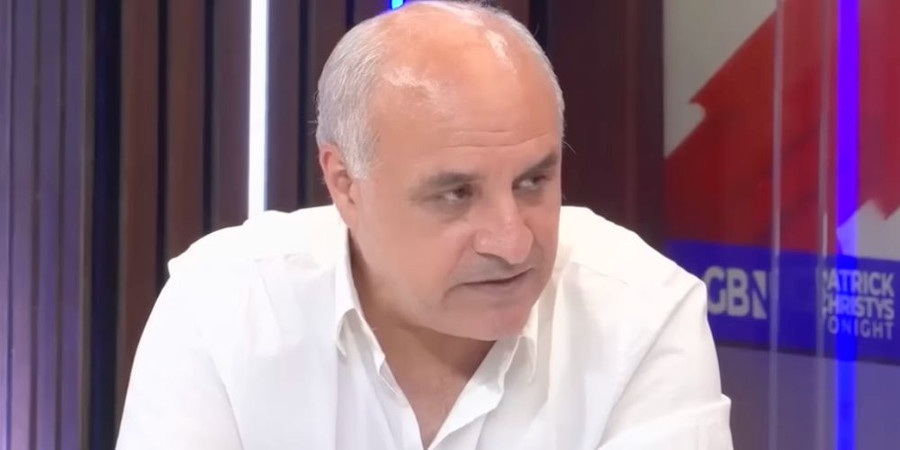As the Obama Administration gropes in the dark for a coherent policy in the Middle East and the hawks in the Republican Party talk of reintroducing U.S. ground forces into Iraq, it is painfully obvious that some new ideas need to be injected into this debate. In diagnosing the problem, we must accept that there are no good options here, so we must focus on finding the least bad one that clearly addresses what our national interest is and what our political and military options should be.
I agree with former Secretary of Defense Bob Gates, who recently stated that we "overestimate our ability to shape events in the Middle East." There are few absolutes in dealing with this problem, merely options with varying probabilities of success. It is a morass with many factions that hold competing interests with constantly shifting alliances all wrapped within a 1000 year old religious war. Those that speak with certitude on this issue within our domestic discourse are being disingenuous and engaging in nothing more than political posturing.
I remember the old adage, "when all you have is a hammer, every problem looks like a nail." Perhaps when all you have is the most powerful armed force in history, every problem looks like a military one. Except here, it isn't, not primarily. Relying on strictly military means to address the Islamic State (IS), also known as ISIS, shows lack of creativity and laziness of thought. For a moment, let's forget we have the mighty military machine that we do and then ask ourselves how we'd address this issue if we didn't.
About a year ago, Chairman of the Joint Chiefs of Staff Dempsey made mention that it might be possible to contain IS, though not in perpetuity. Re-reading George Kennan's famous long telegram that developed the US containment strategy of communism, I noted an important parallel. Both bankrupt ideologies, communism and radical Islam, look better in theory than they do in practice. For the poor masses in Tsarist Russia, equality under communism sounded great until you were forced to work on a collective farm. For the poor masses in the modern Middle East dealing with generations of corrupt and kleptocratic rule, justice under shari'a law sounds great until you get your hand chopped off for smoking a cigarette.
Perhaps by containing the expansion of a "caliphate" and forcing IS to govern under this unworkable model instead of continuously expanding (through the glorious thrill of jihad and the promise of adventure that is the main draw of these fighters), it will collapse under its own ineptitude, just like the Soviet Union did. Look at the Anbar Awakening in 2006 or, more recently, the Muslim Brotherhood's short reign in Egypt. It seems that the best argument against governance by militant Islamists is letting them try it for a while to show the world just how awful they are at it. The caliphate's failure by its own hand would be a much larger PR victory against militant Islam than its downfall by Western military action.
What might such a containment zone look like? It is difficult to say, but the US should not have to shoulder this burden alone and should exert kinetic force only if US interests are directly threatened. For instance, if IS were to attack Turkey, we have NATO commitments that would allow us to intervene. If IS were to encroach on Jordan, we have a significant presence there and they hold Major Non-NATO Ally (MNNA) status. If they press on Kurdistan, we should support the Kurds in pushing back, as they have proven to be one of the few reliable allies in this fight deserving of our assistance.
However, if they advance on Damascus, are we prepared to use our air power to save Assad? If the Iranians and the Russians have to spend blood and treasure they don't have to prop him up, why would we? Should they attack Baghdad, are we prepared to drop ordnance at the behest of the Iranian Revolutionary Guard Corps (IRGC) that is helping the Shi'ite regime there? Are we confident that our bombs would fall on IS targets and not just some Sunni tribal rival that someone might want removed from the Iraqi political sphere? Further, if the regime can't hold the capital, it begs the question, "why are they in charge?" Two tranches of military equipment provided by the US taxpayer to the government in Baghdad have now fallen into IS hands. No more. If this administration insists on arming somebody in this conflict, the least bad option would be to send it directly to the Kurds.
Keeping in mind that this will invariably require a political solution by the parties on the ground, we would be wise to remember the words of Lawrence of Arabia who stated that it was "better to let them do it imperfectly than do it perfectly yourself, for it is their country, their war, and your time is short." Bottom line, we're combating an extremist ideology, and you can't defeat an idea with a bomb; you have to defeat it with a better idea.
Greg Archetto is a former State Department and Defense Department official who specializes in security cooperation issues in the Middle East. He has also spent time on Capitol Hill and is now an independent consultant with One World Consortium LLC. You can find more of his writings at www.thereasonablerepublican.com.





